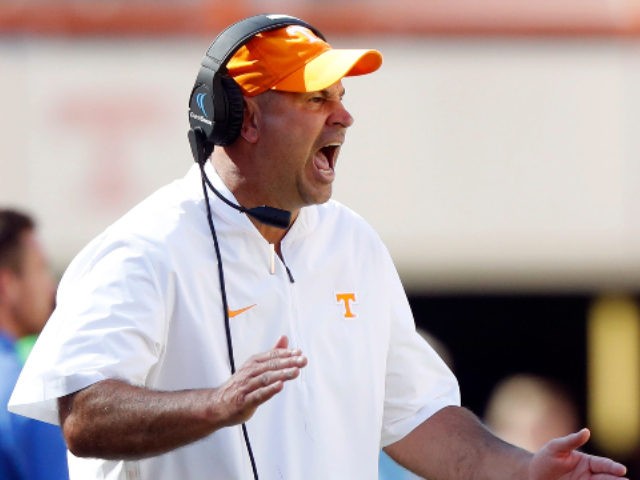In a world full of clickbaity attempts to draw eyeballs with stories that are at best, tenuously connected to the truth. There’s perhaps no more clickbaity thing than the release of the college football preseason rankings.
Every season diehard fans flock to Twitter and comment sections, bringing with them a well-prepared arsenal of their most reasoned arguments and most ferocious burns. Ready, to either angrily defend their teams position in the AP Top 25, or, to savage the AP poll voters for hating their team.
And yet, despite all this passion and excitement over the release of the preseason poll, within weeks we are gifted with a shining example of how pointless the entire exercise is by actually watching college football.
Take for example, the very first Power 5 match-up of the regular season.
The Florida Gators were ranked eighth, heading into their game against Miami. The Hurricanes, for their part, were unranked. However, despite that, the Hurricanes were leading the Gators at the half and giving the team from Gainesville all they could handle. Miami matched Florida in yards gained and won the turnover battle.
Gators quarterback Feleipe Franks was wildly inconsistent and had to rally his team to an eventual 24-20 win. Is that the dominance one would expect to see from the eighth ranked team in the nation when matched against an unranked team?
Stanford, the AP’s 25th ranked team, amassed a ton of yards against unranked Northwestern. However, the Cardinal was held to ten points through three quarters and only 17 points total, in a home game that they eventually managed to win 17-7. Even uglier, Stanford only scored one offensive touchdown. Yes, Stanford starting quarterback K.J. Costello got knocked out of the game. But one offensive touchdown at home against an unranked team? With David Shaw, supposedly one of the best coaches in college football at the helm?
Come on!
A 76-yard punt return was the difference in the game between #24 Nebraska and lowly South Alabama as the two teams headed into the fourth quarter. Yes, you read that right, Nebraska ans South Alabama was actually a highly competitive game going into the fourth quarter. The Huskers would eventually win, 35-21, but Nebraska’s offense scored only two of their team’s five touchdowns.
Michigan, a team somehow ranked seventh after losing their final two games last year by a combined score of 103-54, played a highly uninspiring game against an unranked Middle Tennessee team they were supposed to beat by five touchdowns.
What does all this mean? That the entire preseason poll is meaningless?
No, there’s a reason the headline reads that the poll is “almost” completely useless. Clemson, Alabama, Georgia, Ohio State, Oklahoma, and LSU, are without a doubt the best teams in the country. Nothing those six teams did this weekend left any doubt that the AP voters were correct in placing them at the top of the list.
But that’s too easy.
Those six teams get the highest amount of visibility and media attention in the sport. It’s easy to place those six at the top because it’s obvious that they’re better. Though, when it comes to places 7 through 25, the voters have not shown nearly the same level of analytical skill.
So here’s an idea: Instead of doing the AP Top 25, how about just doing the AP Top 5?
Why not stick to what you know? As opposed to projecting winners and losers from the sea of relative mediocrity that is much of college football? Because here’s the thing, there is a class system in college football. There are the haves: Clemson, Alabama, and Georgia. And there are the have nots: Everyone else.
Sure, Notre Dame is a good team. But they lost to Clemson 30-3 in the playoffs last year. Oklahoma is really good, and despite having back-to-back Heisman trophy winners, they’ve twice failed to win a playoff game.
So why not pick the best five, and let the rest figure it out?
Or, another radical idea, don’t do a poll at all. Let all the teams prove who and what they are on the field and rank them accordingly once you actually know what you’re talking about. Such an arrangement would be a massive improvement over the clickbaity guesstimations of voters who are ranking teams they’ve never actually seen.
Follow Dylan Gwinn on Twitter @themightygwinn

COMMENTS
Please let us know if you're having issues with commenting.